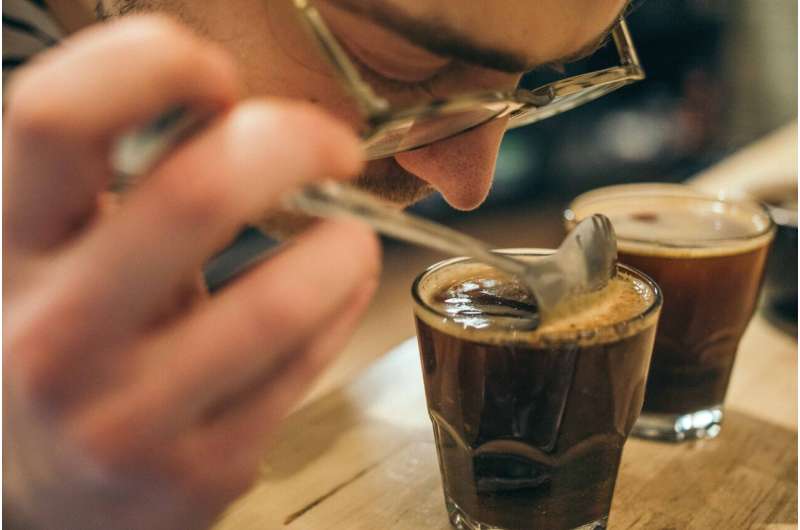This article has been reviewed according to Science X's editorial process and policies. Editors have highlighted the following attributes while ensuring the content's credibility:
fact-checked
peer-reviewed publication
trusted source
proofread
Scents might help depressed individuals, new study says

Smelling a familiar scent can help depressed individuals recall specific autobiographical memories and potentially assist in their recovery, discovered a team of University of Pittsburgh School of Medicine researchers and UPMC social workers in a study published in JAMA Network Open.
The study showed that scents are more effective than words at bringing back a memory of a specific event and could even be used in the clinical setting to help depressed individuals get out of the negative thought cycles and rewire thought patterns, aiding faster and smoother healing.
Early in her career, Dr. Kymberly Young, a neuroscience researcher who studies autobiographical memories, realized that engaging the amygdala—the reptilian brain that controls not only the 'fight or flight' responses but also directs attention and focus to important events—helps with memory recall.
She also knew of extensive evidence that people with depression have a hard time recalling specific autobiographical memories and that, in healthy individuals, odors trigger memories that feel vivid and 'real,' likely because they directly engage the amygdala through nerve connections from the olfactory bulb.
"It was surprising to me that nobody thought to look at memory recall in depressed individuals using odor cues before," said Young, senior author of the study and associate professor of psychiatry at Pitt.
So, she decided to test whether engaging the amygdala could help depressed individuals access their memories more effectively. And rather than using costly and often inaccessible brain scanner tests, she decided to go much more low-tech.
In this study, Young presented study participants with a series of opaque glass vials containing potent familiar scents—from oranges and ground coffee to shoe polish, and even Vicks VapoRub.
After asking participants to smell the vial, Young asked them to recall a specific memory, whether good or bad.
Young was surprised to discover that memory recall was stronger in depressed individuals who received odor cues as opposed to word cues. Those who received odor cues were more likely to recall a memory of a specific event (for example, that they went to a coffee shop last Friday) than general memories (that they have been to coffee shops before).
Memories spurred by odors were also a lot more vivid and felt more immersive and real. Excitingly, Young said, even though she did not direct participants to specifically recall positive memories, her results point out that participants were more likely to remember positive events.
Young is getting ready to start more technologically advanced studies using a brain scanner to prove that scents help engage the amygdala of depressed individuals more effectively than word cues, but in the meantime, she is excited about the progress already made.
"If we improve memory, we can improve problem solving, emotion regulation and other functional problems that depressed individuals often experience," Young said.
More information: Kymberly Young et al, Recall of Autobiographical Memories Following Odor vs Verbal Cues Among Adults With Major Depressive Disorder, JAMA Network Open (2024). DOI: 10.1001/jamanetworkopen.2023.55958



















